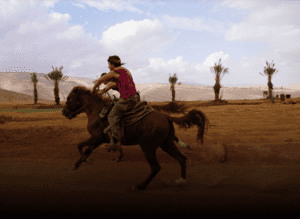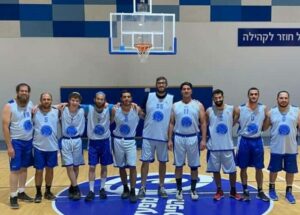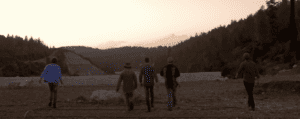Alef Baruch was born in a small Jewish village in Ethiopia in the early 1970s. Even as a young girl being married off to an older boy, she decided on her own that she would one day try to make the impossible mission to travel all the way to the Promised Land. She had no idea what kind of agony that journey would entail and many times along the way, Alef lost all hope.
Israel’s Independence Day, which is celebrated this year on April 28th, is also a time to remember the personal journey towards independence that individuals had to go through in order to finally arrive safely in their homeland of Israel.
Growing up, Alef was always taught that although she was born in Ethiopia, the only place a Jew truly belongs is in Israel. The Elders would speak about Jerusalem, the City of Gold, where you can drink milk without cows and that even the stones were made out of gold.
Alef would dream of one day arriving in Israel, imagining herself walking on the golden cobblestones of the Holy City.
“At age eight, I was married off to a 15 year old Jewish boy from the neighboring village. As per the custom, I would move to his parent’s home until I got my period, at which point, we would then be married and move into our own hut.”
After a couple of days, she already missed her mother greatly and walked the 5 hour trek back to her village. Her mother scolded her and brought her back, warning her not to bring shame onto the whole family. After this repeated itself a couple of times, her mother finally gave up, but it was now very hard to marry her off, as she was now considered “stained”.
She was living at home when one day her older sister Werka came to visit from a far away city, on the Ethiopian Sudan border. Werka was able to open and run her own coffee shop there. She pleaded with her mother to take Alef with her, so she can watch over her and even teach her to read and write like a city girl, but of course their mother refused.
One early morning, Werka took Alef without their mother’s permission and traveled to her city. There, in the mornings she attended school, and in the afternoons she would help her older sister by serving drinks. It was forbidden for her to mention that she was Jewish, and so it was kept a complete secret.
At the time, in Ethiopia there was a big civil war going on, and anyone who could get out would escape. Many fled towards Sudan.
Alef noticed that her sister’s cafe was also a meeting point for Jews to meet their guides in order to cross over the border into Sudan.
Alef found a guide that agreed to take her over the border and at age twelve she took the 20 bir (about 50 cents) from the register in order to pay the guide. She joined a group of other Jews on their journey towards Sudan, where they were supposed to meet Israeli Mossad agents that would take them to Israel.
She remembers walking for 3 long nights, as they would rest during the days in order not to be caught by the Ethiopian army.
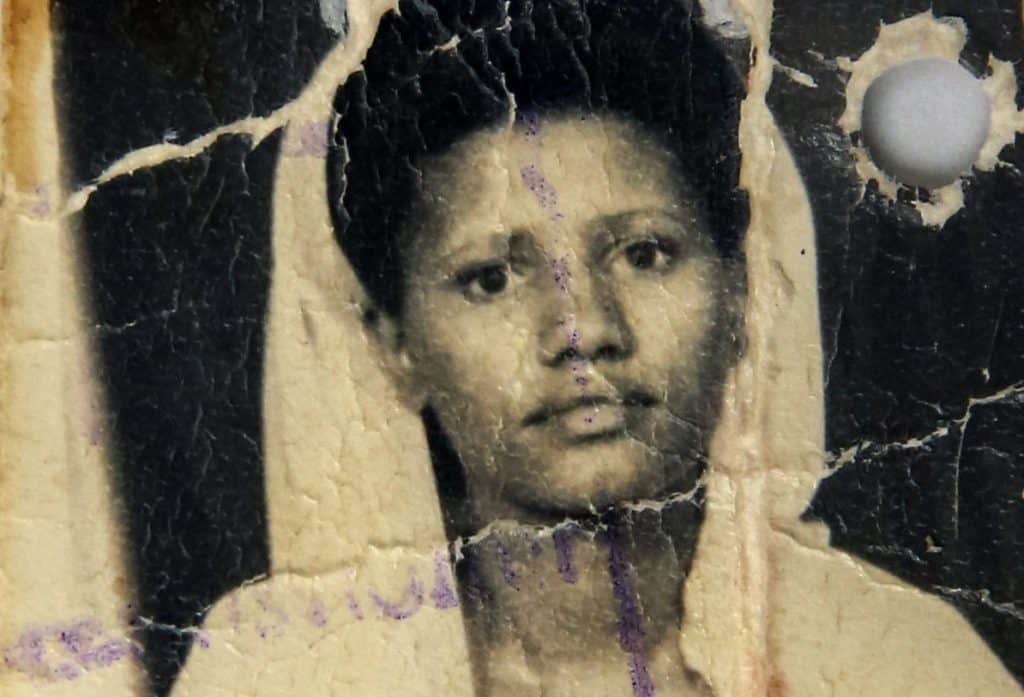
After they finally crossed over the border to Sudan, they then needed to cross a big river and everyone needed to pay 3 Bir for the boat. Alef who only brought the 20 Bir, nothing else and was living off crumbs and small amounts of water that were gifted to her from the other travelers had no way of paying for the boat. She pleaded that someone give her the money, but her pleads fell on empty ears. The boat left and she decided although she had never swam before, that she would give it a try.
She only remembers drowning in the water and then waking up with a bunch of Sudanis fisherman standing around her speaking Sudanis Arabic, a language she did not understand.
Three Ethiopian policemen arrived and threw her in a jail cell. This is when her life took a turn for the worst. Every evening a number of Sudanis police officers would come in and do to her as they please.
“In the beginning, I would try to resist by kicking and screaming, but then they would beat me and it would only hurt more. So I learned that it was easier to faint, and let them do what they wanted.”
She lost complete feeling in the lower part of her body, and just wanted to die.
“I called upon Thy name, O LORD, out of the lowest dungeon.” (Lamentations 3:55)
She was angry at God for abandoning her, she was angry at her sister for taking her and she was angry at herself for being so foolish thinking that she could get away so easily.
One morning after what must have been a couple of months, the door opened. At first she was scared.
“Now this will become a day-time occurrence as well,” she thought to herself.
Yet instead, she was taken out of the cell, a black head covering was thrown over her head and she was given to a truck driver outside that threw her in the back of the truck.
They drove all day and arrived late at night at a walled compound, where she was removed from the truck and given to a tall woman named Hadija, the woman of the home. She was shown around the home and was thrown into a little room with Sudanis bread and water.
She gobbled down the bread and water and fell into a deep sleep. In the morning she was woken up early and told to cook food. She then realized that she had been sold into slavery, to a Sudanis family.
For a year she worked very hard from sunrise until the late hours of the nights, cooking and cleaning.
She tried many times to escape, but every time she got caught, Hadija would pour boiling water on her legs, which turned into terrible burns that lead to welts and peeling skin.
After about a year, there was a knock on the gate. Two tall men with an Ethiopian girl were there to do business with the master of the home. As Alef served them tea, the Ethiopain girl whispered to Alef,
“Are you Alef? Werka’s sister?”
Alef was shocked and nodded quietly.
The Ethiopian woman stood up and grabbed Alef by her arm and said, “She is coming with me, she is mine.”
The family angrily refused saying, “We paid good money for her and she is not going anywhere!”
They then pounced on them with clubs and kitchen knives. Alef was thrown to the floor. She felt a sharp stab to her neck and felt blood coming out of her left eye. All she remembers is the Ethiopian woman lying on the floor, and the men of the household kicking her in her face and stomach. Then, she blacked out.
What she didn’t know was that her sister, Werka, had searched for her and found out that she was sent to jail, and was told that she was sold to this family. Werka hired another Ethiopian woman who traveled to the village, and paid a bunch of bandits to protect her and rescue her friend’s sister.
They traveled 3 days to another city, where they paid a doctor to take care of her eye and the stabbing wound in her neck. Unfortunately, she was left blind in that eye.
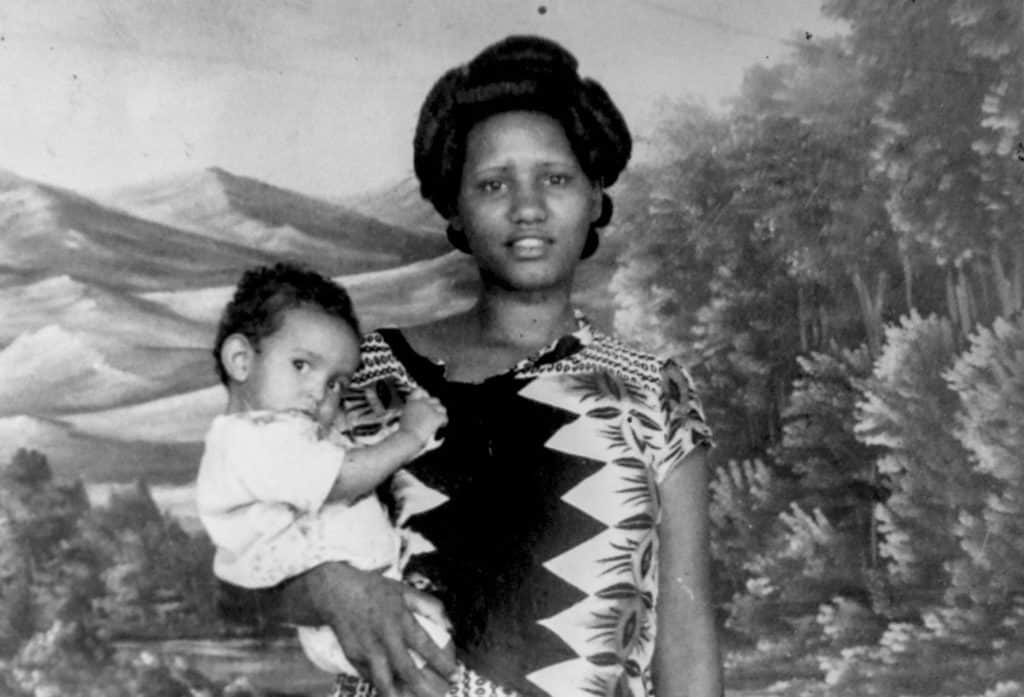
A few years later, in 1992, her sister Werka came and told her that Israel is bringing the Ethiopian Jews by plane, to Israel, straight from Ethiopia. They traveled together to Gondar, Ethiopia, went through the Jewish agency and finally arrived in Israel where her parents and the rest of her siblings were already living for quite some years.
Today, Alef enjoys living in the community of Ramla with her 5 children. Yael (featured in the picture above), heard Alef’s story and volunteered to write her story into a book.
“When I arrived here, I was still looking for the golden stones!”
Life is not as easy as she imagined, but she is home, where all Jews truly belong.
Her message to everyone is that even when things are difficult and look impossible, we must put our trust in the Almighty and He will redeem us.
We are now celebrating 72 years of Israel’s independence. Israel as a country, also went through many hardships, but we put our trust in the Almighty and we know that He will ultimately keep His promise towards the individual and across the globe.


